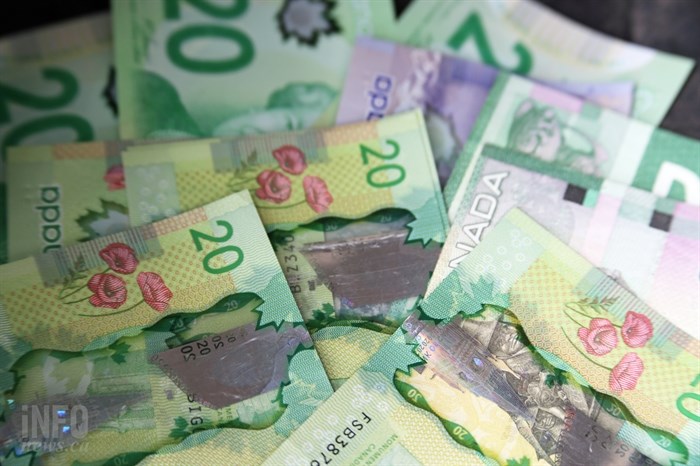
(JENNIFER STAHN / iNFOnews.ca)
March 25, 2020 - 8:00 AM
Despite many government programs being announced in recent days to help people who can’t work because of COVID-19, none of them will be in place before April's rent is due a week from now.
B.C.'s $1,000, one-time payment announced yesterday, March 23, can’t be applied for until some time in April to be paid in May.
Many federal programs still need to be approved by Parliament, which is sitting today.
Here are some of the benefits, when they will be available and links to find more information.
BRITISH COLUMBIA
The $1,000, one-time B.C. Emergency Benefit for Workers will be paid to B.C. residents who receive federal Employment Insurance, Emergency Care Benefit or Emergency Support Benefit.
Applications will open in April (no date or link is yet available) to be paid in May (no date specified.)
Those eligible for the quarterly B.C. Climate Action Tax Credit will get an extra $44 as a one-time enhancement in July (usually the fifth day of the month). Children will get an extra $13.
This payment only goes to lower income people and is paid with their federal GST credit.
More information on B.C. programs is available here.
FEDERAL BENEFITS
Prime Minister Justin Trudeau has announced a number of measures including:
Temporary Income Support for Workers and Parents. This is for people without paid sick leave who are sick, quarantined or forced to stay home to look after children. For them, the one-week waiting period to collect medical Employment Insurance and the need for a doctor’s note is waived. This provides up to $900 every two weeks for 15 weeks and is valued at up to $10 billion.
Emergency Support Benefit is for people who do not qualify for Employment Insurance and is expected to cost up to $5 billion.
These benefits still need to be passed by Parliament but are expected to roll out in early April.
For 12 million low and modest income families who qualify for the Goods and Services Tax Credit, they will get a one-time special payment by early May. The average increase will be $400 for a single person and close to $600 for a couple and will cost about $5.5 billion.
These, too, need parliamentary approval but won’t be paid until May.
Plus, people don’t have to file their 2019 Income Tax returns until June 1. But, those who get the GST or child tax credit should file by April 30 to make sure they get the right payment amount. This will provide flexibility to seniors who are worried they will have to liquidate their RRIFs in order to meet minimum withdrawal requirements.
The only benefit for seniors is that the required minimum withdrawal level from Registered Retirement Income Funds (RRIFs) is being cut by 25 per cent. This applies to those worried about having to cash in those funds in order to meet the minimum withdrawal requirements.
There’s no mention of people with disabilities on federal or provincial COVID-19 response sites.
More on federal benefits can be found here.
To contact a reporter for this story, email Rob Munro or call 250-808-0143 or email the editor. You can also submit photos, videos or news tips to the newsroom and be entered to win a monthly prize draw.
We welcome your comments and opinions on our stories but play nice. We won't censor or delete comments unless they contain off-topic statements or links, unnecessary vulgarity, false facts, spam or obviously fake profiles. If you have any concerns about what you see in comments, email the editor in the link above.
News from © iNFOnews, 2020